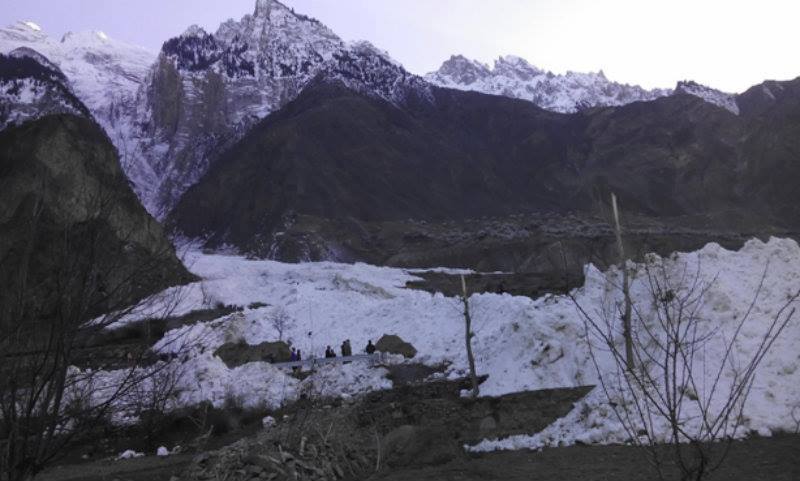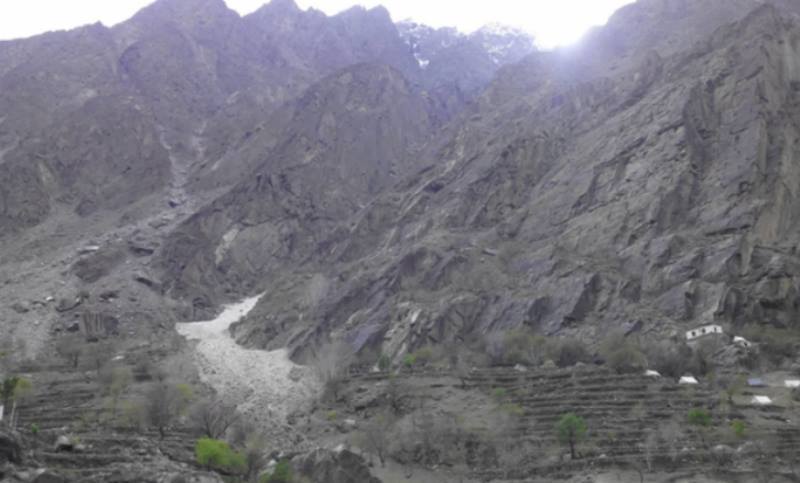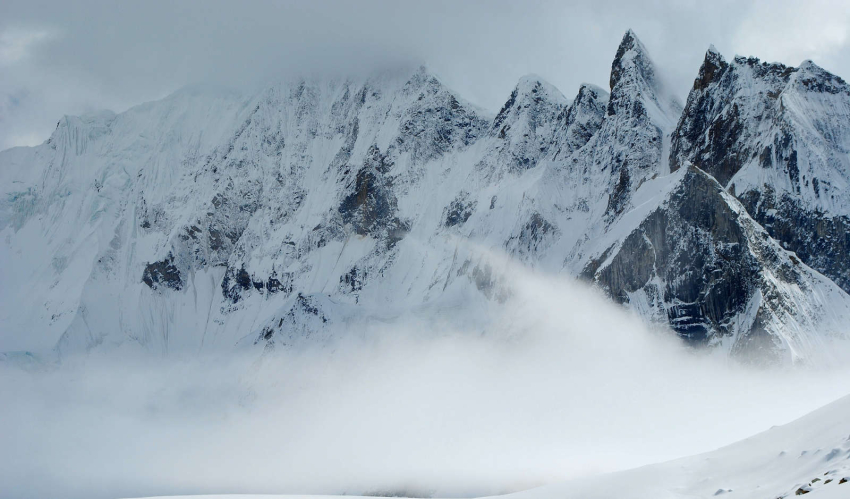Recently heavy rainfall and stormy weather in the northern areas has triggered landslides and avalanches in different areas of Gilgit-Baltistan, specifically in Nagar, Skardu and Ghizer.
Avalanches and landslides greatly affected the downstream population in the Karakorum, Himalaya and Hindu Kush (HKH) regions. The heavy downpour was caused by fresh westerly wave.
The northern mountainous region of Pakistan is rich in natural resources and has an abundance of water, scenery and biodiversity. Spanning an area over 4.2 million sq km, the (HKH) region is especially diverse in ecological terms. It has the largest area covered by glaciers and permafrost outside the polar region, and is therefore often referred to as the “Third Pole” and the “Water Tower of Asia” as it stores a large volume of water, particularly in the form of snow and ice.
However, recent changes in climate are threatening the mountain ecosystem, particularly its fresh water supply, high elevation biota, including forests, and the rangeland and pasture ecosystem.

The impacts of climate change on the world’s fresh water supply is a burning issue in the world, especially in the HKH region. There are 1.2 billion people (approx) living in downstream, extending from Pakistan to China and Nepal. Recent increases in the area’s population has put further stress on fresh water supply.
According to World Bank report 2006, Pakistan has transitioned from a water-stressed to a water-scarce nation, primarily due to human activity and climate change. Dwindling fresh water reserves in turn impact the country’s capacity for energy and food creation. Water availability in Pakistan, which was about 5,650 cubic metres per person per year in 1951, has now decreased to 1,100 cubic metres per person per year in 2010. According to projections, water availability will reduce to 800 cubic metres per person per year by 2026 if the current situation prevails.
Due to climate change, HKH glaciers are receding and natural calamities are occurring, including avalanches, GLOF events, and landslides etc. The main factors which cause snow avalanches include slope steepness of landscape, weather, temperature and snowpack conditions etc.
Avalanches occur when snow pack starts to weaken, allowing built-up snow to be released. Small avalanches are generally made up of ice, snow and air. The larger ones comprise rocks, trees, debris and even mud that is resting on the lower slopes. Mountain avalanches are much larger and the conditions that cause them are more complex. In mountainous areas, particularly in Gilgit-Baltistan, snowfall patterns are changing due to climate change. As a result snow accumulates in late winter after a heavy fall and has no time to become stable. Due to a sudden increase of temperature in spring, the melting of fresh snow increases, which sometimes causes flash floods.

Recently due to heavy precipitation (Snow) in late winter (February and March), loose snow avalanches were triggered in different districts of Gilgit-Baltistan such as in district Nagar, Ghizer and Skardu.
The main cause of these avalanches was heavy snowfall, heavy storm and rainfall. Such avalanches repeat after a long period of time (five years).
In Nilt, an avalanche hit on Sunday, April 22, 2016, at night (2:00 AM). In district Nagar, two other avalanches slid down Miacher and Phaker valley. Similar avalanches also occurred in district Ghizer as Daeen and Seengal areas.
Seengal avalanche blocked Gahkuch road for all type of traffic. Avalanches in Nagar devastated the downstream area and blocked the trade route between Pakistan and China in addition to damaging pastures, orchards, agricultural land and destroying water channels.
In Skardu, several avalanches occurred at Chamachoo and Bashoo, while the Bashoo avalanche also blocked Skardu for all types of traffic and also blocked the Indus River for a short period of time, according to local people. Unfortunately, no human causalities were reported.
It is important to increase local awareness about avalanches and extreme natural events especially in mountainous areas because of the devastation such events cause. The Gilgit-Baltistan government should prepare itself for upcoming natural disasters triggered by climate change.
The global community should also aid Pakistan in the event of future calamities caused by climate change.
Nasir Hussain is an MPhil scholar at Department of Environmental Sciences, Karakorum International University Gilgit.














